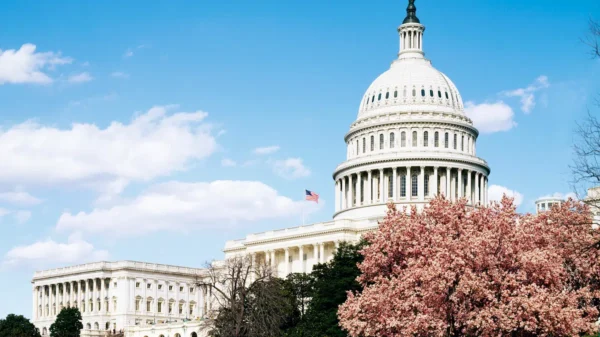Block Inc. (NYSE: XYZ) is set to join the S&P 500 this week, a move that cements its status among the most valuable and influential publicly traded companies in the U.S.
The announcement came Friday, with Block set to replace Hess Corp., an oil and gas company currently being acquired by Chevron. The move positions Block as the second crypto-facing company to enter the benchmark index in under a year, following Coinbase Global‘s (NASDAQ: COIN) addition in May.
To qualify for the S&P 500, companies must meet stringent criteria for profitability, liquidity, and trading volume. Block’s inclusion signals its financial stability and operational maturity. While Coinbase operates as a pure-play crypto exchange, Block integrates Bitcoin into its broader fintech ecosystem. It offers Bitcoin exposure through consumer and merchant-facing services, such as Cash App.
Block also stands out as one of the first public firms to implement a Bitcoin Treasury strategy. It ranks among the top ten companies globally for Bitcoin holdings, with more than 8,500 BTC on its balance sheet, according to Bitcoin Treasuries. In April 2023, the company introduced a Bitcoin investment blueprint that commits 10 per cent of its gross profit from Bitcoin-related products to monthly Bitcoin purchases. Block presents this as part of a broader strategy aimed at “global economic empowerment.”
Additionally, the firm supports the open-source Bitcoin ecosystem through its Spiral initiative. It is also building decentralized identity and infrastructure solutions through its TBD division. These projects show CEO Jack Dorsey’s belief in Bitcoin’s long-term potential and the decentralized ethos that reinforce Block’s mission.
Read more: US lawmakers pass first major crypto law, but will progress come to a halt?
Read more: Coinbase unveils new “everything app” to compete with China’s WeChat and Alipay
Regulators are starting to accommodate blockchain-based services
Block’s addition to the S&P 500 reflects a wider trend of crypto-aligned firms entering mainstream financial markets. Robbie Ferguson, president and co-founder of blockchain infrastructure firm Immutable, said the development shows how crypto companies are “becoming a mainstream staple of markets.” He pointed to growing institutional interest and regulatory shifts as catalysts for this change.
Meanwhile, stablecoin issuer Circle Internet Group Inc (NYSE: CRCL) went public via a direct listing in January 2024, marking a long-awaited debut after two failed SPAC attempts. Its listing reflects the growing acceptance of blockchain-based financial firms in traditional capital markets.
In support of this evolution, President Trump recently signed the GENIUS Act into law. The legislation directs federal agencies to promote blockchain adoption and recognize certain digital assets, including stablecoins, as critical infrastructure. Stablecoins are U.S. dollar-pegged digital tokens that facilitate trading and settlement between cryptocurrencies and fiat currencies.
Furthermore, Block has spent years building out its crypto capabilities. Through Cash App, it enables Bitcoin purchases and transfers for retail users. It also launched a self-custody wallet to enhance user control over digital assets. These products align with Block’s long-standing emphasis on financial empowerment and user autonomy.
Hank Huang, CEO of Kronos Research, emphasized that the company’s S&P 500 inclusion represents more than a balance sheet milestone. Huang believes this move indicates “TradFi’s growing trust in crypto-aligned companies and the steady adoption of blockchain-backed infrastructure.”














